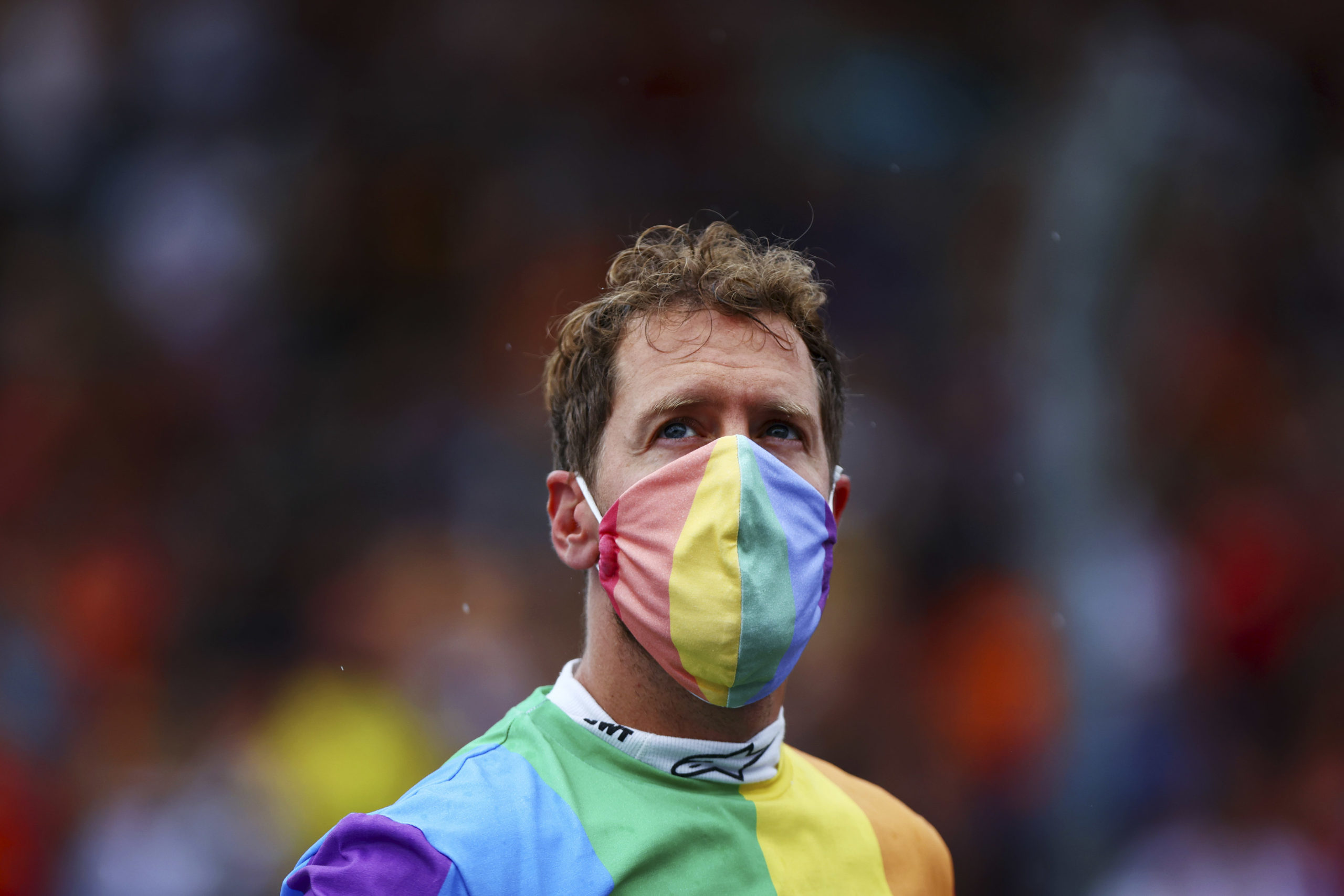Fighting homophobia in Hungary through football
The sporting world is waking up to how the country’s authoritarian leader, who supposedly loves the beautiful game, is using it to hide his utter contempt for people from the LGBTQIA+ community.
Author:
8 October 2021

For a brief moment in June, Hungary seemed to be the centre of European football’s restart after long months of Covid-19 disruptions. Images of a packed Puskás Arená in Budapest, with thousands of fans loudly cheering Uefa European Championship matches, reminded the sporting world of the pleasures the pandemic had taken away.
How could one not love a welcoming country offering freedoms that other countries could not, with a national team punching above their weight in a group comprising powerhouses France, Germany and Portugal?
But the bubble of euphoria was burst by the realisation that Hungarian Prime Minister Viktor Orbán used the tournament to paint a different picture of the country that recently passed homophobic laws discriminating against members of the LGBTQIA+ community. The latest came in June, when a ban on featuring gay content in school educational materials and television shows and advertising for under-18s was made law.
Germany sought to put the spotlight on this when the mayor of Munich, Dieter Reiter, asked the European football governing body for permission to light up the Allianz Arena in rainbow colours during his country’s clash with Hungary on 23 June. Uefa controversially turned down the request, which highlighted Orbán’s influential position in the world of football, a sport he loves and uses the most to disguise his authoritarianism.
Related article:
“I think [that football for Orbán] is an obsession and a soft power tool in the region,” says Tomasz Mortimer, founder of the website HungarianFootball.com, which is dedicated to English-language coverage of football in the country. “The Hungarian government has spent a lot of money on football – nearly $3 billion, most of it coming from EU [European Union] funds.”
That money has been spent in surrounding countries. Various personalities close to the Hungarian government bought or funded clubs in Croatia (NK Osijek), Slovakia (FC DAC 1904 Dunajská Streda, the 2020-2021 first division runners-up), and Romania (Sepsi Sfantu Gheorghe and Csikszereda Miercurea Ciuc). These clubs are either “ethnic” Hungarian or based in regions where there is an “ethnic” Hungarian minority. There have also been huge investments in the building of new stadiums, whose construction came about through cronyism.
“Orbán used to play at a semi-pro level and some people say he was a good footballer, but that’s not true,” says Mortimer. “He also goes to a lot of games – even to clubs and the national team’s away games – to show his face and how he is interested in this sport, but there is just a small part of genuine love in Orbán’s relationship with football.”
In the most recent season, Hungary also hosted some Champions League matches between teams that couldn’t visit each other owing to travel restrictions between their countries. The Uefa Super Cup between Bayern Munich and Sevilla, which was supposed to be staged in Portugal, was moved to Hungary.
Taking a stand
Considering Orbán’s extensive use of football in the political field, it is significant that some of the challenges to his authoritarianism have come from the beautiful game. In February, Hungarian goalkeeper Péter Gulácsi took a stand against a law introduced in December 2020 that prevents LGBTQIA+ couples from adopting children. His post on Facebook generated notable interaction among his compatriots.
“Everyone has the right to equality,” Gulácsi wrote. “The same way every child has the right to grow up in a happy family, of any gender, of any colour, of any religion. The more time a person spends abroad, the more they realise that … love, acceptance and tolerance for others is the most important.”
Gulácsi, who plays for Germany’s RB Leipzig, added a picture of him and his wife both showing a hand on which was drawn a family whose gender wasn’t recognisable. He also used the hashtag #acsaládazcsalád (#familyisfamily).
Related article:
“It caused a massive outrage and a political debate,” says Mortimer. “Hungarian ultra-fans came out and condemned Gulácsi for that. But I don’t think Gulácsi will make too much of an impact because most of the media are in favour of Orbán.”
In fact, the government controls the vast majority of the media. Reporters Without Borders ranked Hungary 92nd in the 2021 World Press Freedom Index, 36 positions lower than it was in 2013.
“When Hungary played against Cyprus [on 4 June], Gulácsi wasn’t booed,” says Mortimer. “Fans didn’t want to affect the squad ahead of the Euros. Gulacsi’s stance doesn’t matter to such an extent that they will jeopardise the national team’s path.”
Fear of speaking out
Mortimer says Gulácsi is not the only athlete opposed to this law. “There is definitely a lot more support [for it], but you can’t see it from outside. It’s not public because it’s too hard for them to oppose Orbán, especially if they live in Hungary.”
János Hrutka, who earned over 20 caps for Hungary, defended Gulácsi’s action when he worked as a football commentator for Spíler TV, which has close ties to the government. He was allegedly fired because of his stance, as reported by David Goldblatt.
Hrutka denies that’s what led to his dismissal, but admits that many people fear speaking openly about certain issues. “I have shown that it is also possible to talk honestly and realistically about football, sport and other things around it,” he says.

“Everyone wants their messages to reach as many people as possible, but you will find very few opinion leaders or athletes who will dare to express their opinion on any issue here, as they will not risk their job, their livelihood, or their existence. Nonetheless, I believe that we must dare to talk in order to exchange views on topics that bring us forward.”
Luca Dudits, communications officer of the Háttér Society, one of the oldest and largest non-governmental organisations that support LGBTQIA+ people in Hungary, says the situation for the community is “quite grave”.
“Since 2019, the government has been using the LGBTQIA+ community as a scapegoat to create a new political enemy to gain votes and support. Then, since 2020, they have passed discriminatory laws. They banned legal gender recognition, which has been possible for 20 years, even though the ban is completely unconstitutional and goes against both the Hungarian and international human rights norms.”
Hidden agendas
Dudits says the law that Gulácsi highlighted prevents unmarried couples from adopting children. Because since same-sex couples cannot marry in Hungary, LGBTQIA+ people are effectively disqualified too.
Regarding the law banning gay content in schools, which was presented by Orbán’s Fidesz party under the guise of combating paedophilia, Dudits says: “This is just a direct response to the support that the rainbow family campaign has received over the last half a year.”
In July, the European Commission launched infringement procedures against Hungary and Poland for their discriminatory laws. Dudits says although there was no official statement confirming why Hrutka was dismissed, it was quite obviously because of his support for Gulácsi’s stance. She points out that another commentator was fired just because he liked Hrukta’s post on Facebook.
Related article:
“That’s the kind of censorship that we have right now in Hungary, and that is also why there is a lot of self censorship in the [LGBTQIA+] community,” says Dudits. “It’s just that people are really afraid because you can lose your job over liking a Facebook post now. It’s something that is very scary. The government’s iron grip on society is just tightening when it comes to fearmongering and spreading this kind of hate.”
In this climate of repression, the actions of celebrated athletes living abroad can make a great contribution and raise awareness of human rights. The Formula 1 drivers Sebastian Vettel from Germany and Lewis Hamilton from England wore garments in the colours of the rainbow flag prior to the start of the Hungarian Grand Prix. The recently retired woman footballer Zsanett Jakabfi lives in Germany and has always been at the forefront of defending the rights of the LGBTQIA+ community.
“I think athletes and celebrities have a huge impact on spreading information,” Dudits says. “Even if we just look at those who took the knee in both the NFL [National Football League] and at the Euros, I think it’s a very important step that they can take.
“They can reach segments of society that we can’t, because our followings are not the same. Most football fans and LGBTQIA+ people who follow our pages are not really on the same diagram, so it is a really good way to reach new audiences. Honestly, it is definitely something that doesn’t take them much, while it means tremendous support for us.”



